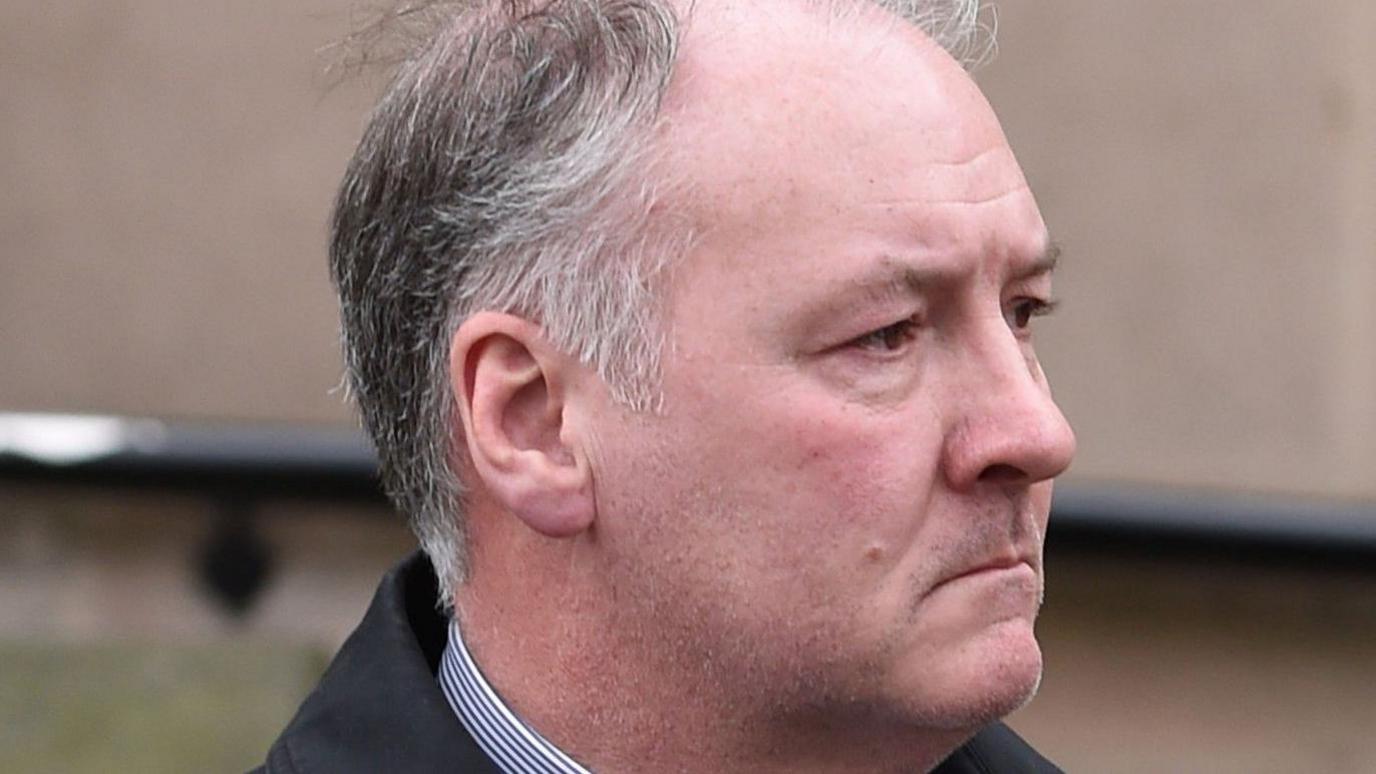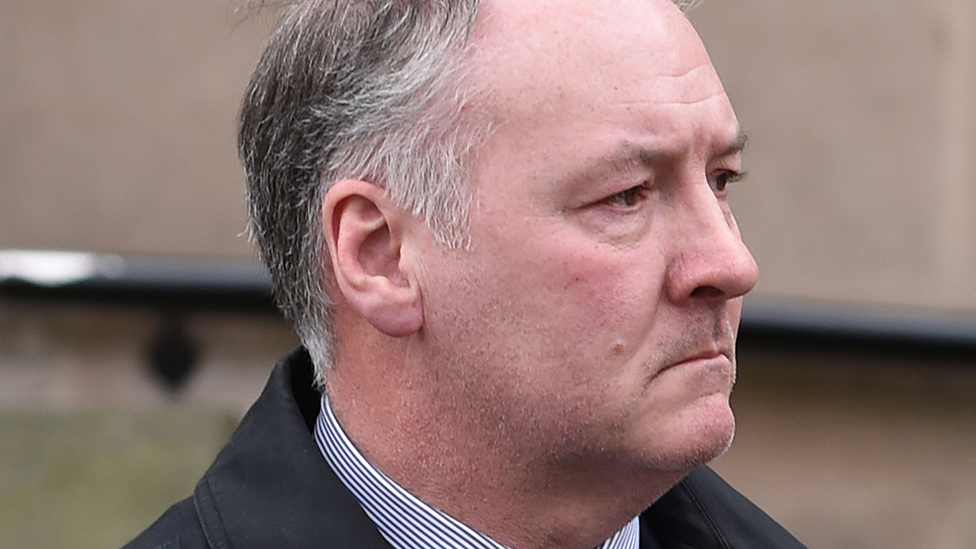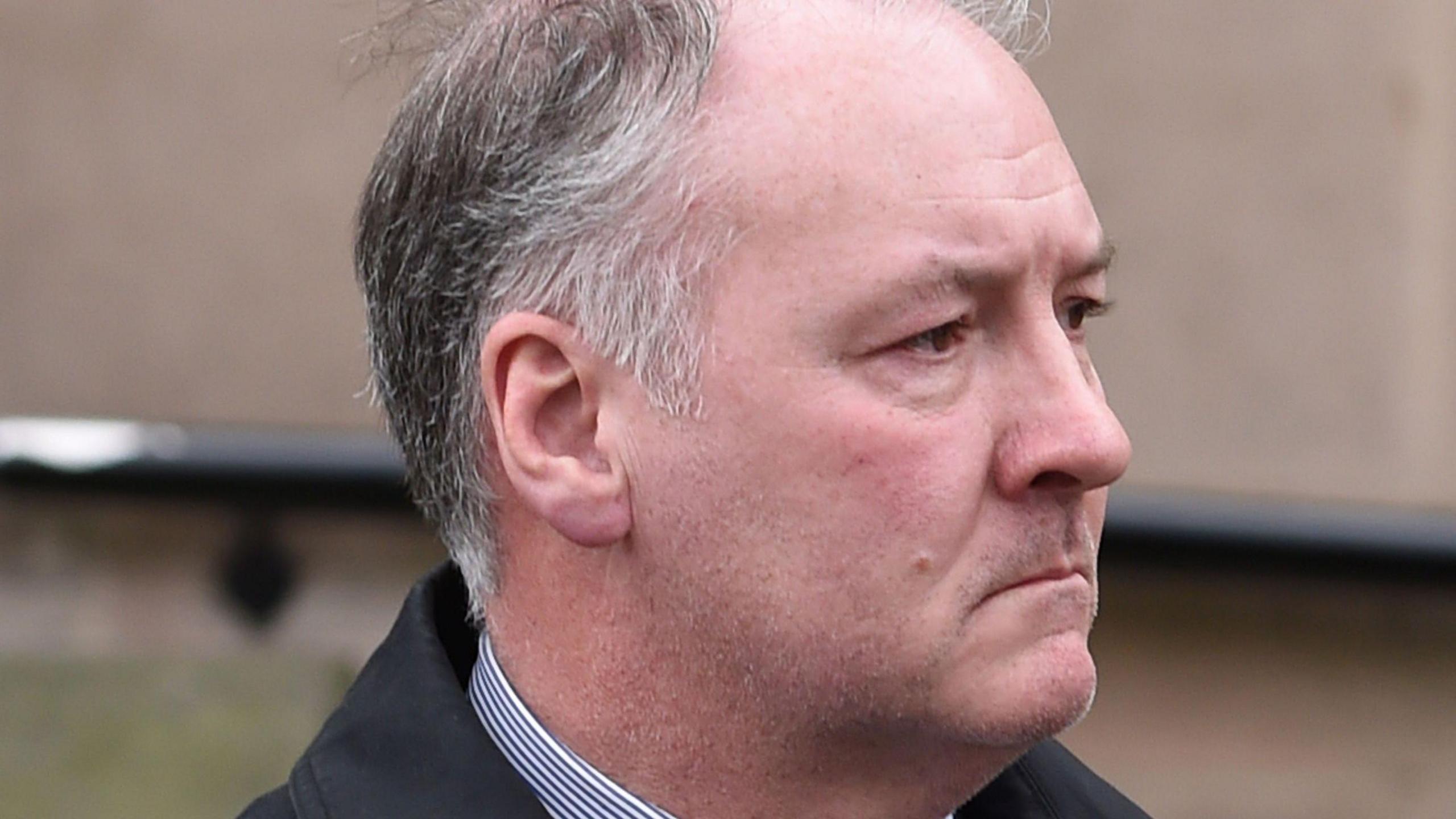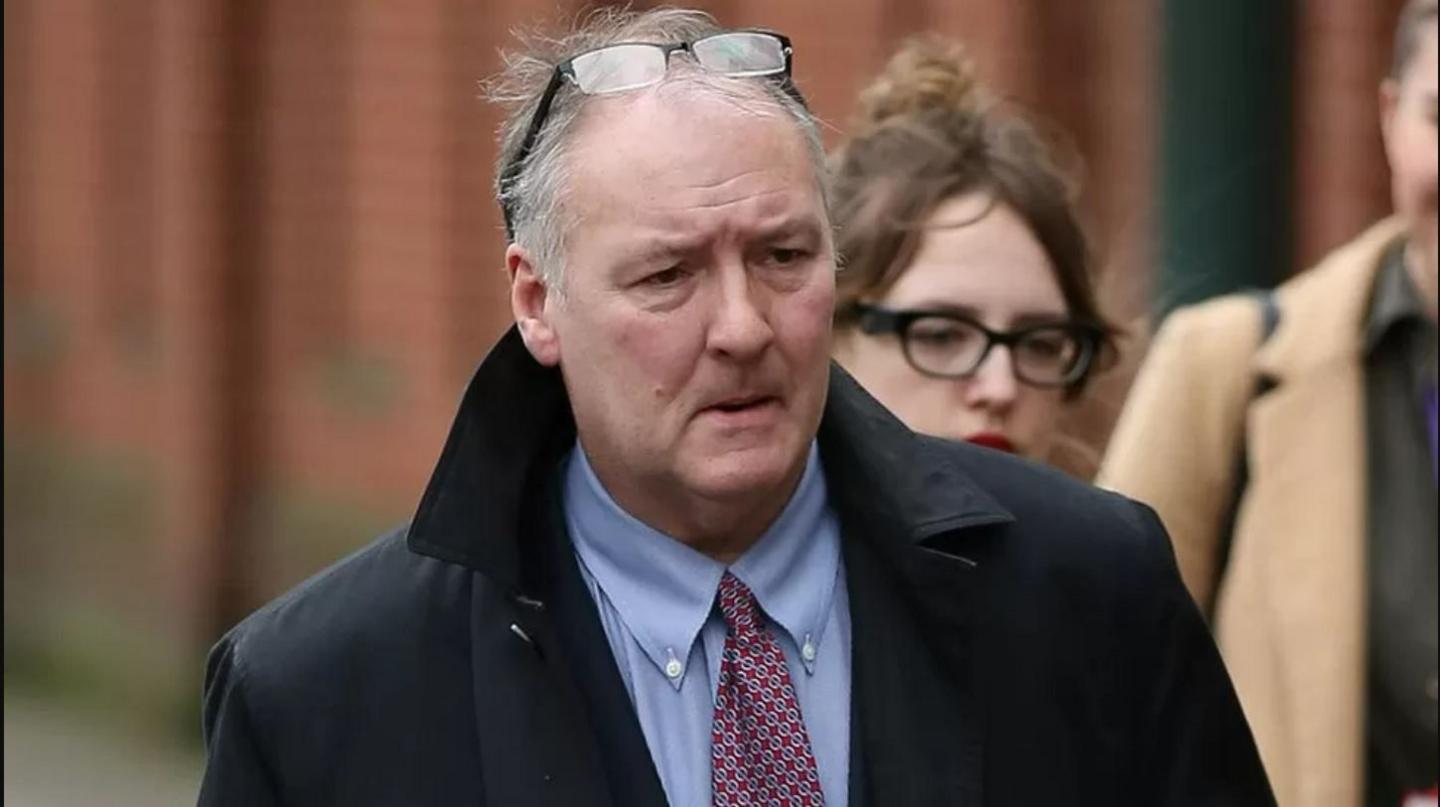Jailed surgeon's mastectomies inadequate - inquest

Ian Paterson is serving a 20-year sentence for wounding 10 of his former patients
- Published
A colleague of disgraced breast surgeon Ian Paterson raised concerns mastectomies he was carrying out on cancer patients were "not adequate" but did not report him to the General Medical Council (GMC), an inquest heard.
Fazel Fatah, who gave evidence at one of 62 inquests for former patients, carried out breast reconstructions four times after Paterson had performed mastectomies at Birmingham's City Hospital.
Mr Fatah said he did not really feel it was his "role to report him to the GMC".
He said two of the patients he operated on still had breast tissue left behind after their mastectomy and tumour remains.
Mr Fatah added this led him to believe Paterson's technique, which took him about half an hour - instead of "meticulously" dissecting and separating the gland from the skin, which took others up to two hours - was inadequate for those with cancer.
Paterson is serving a 20-year sentence for wounding 10 of his former patients after being convicted in 2017.
This inquest, into the death of Melanie Chalklen, who died aged 61 in 2017, is the eighth in a series of 62 to be held at Birmingham and Solihull Coroners Court.
'Quick sweep'
Mr Fatah, a consultant plastic surgeon, said after the four times he operated on Paterson's patients following his surgery, he asked not to work with him any more.
"The way Paterson did the surgery, he used quite a large scalpel," he told the inquest.
"So instead of actually defining the tissue layer between the skin and breast tissue, he just created a layer with the knife which meant there was no separation of the two entities to make sure the breast tissue had been removed.
"It was a quick sweep of the knife round the top and bottom of the breast and lifting it off the muscle."
Mr Fatah told the lead breast surgeon at City Hospital, Martin Lee, about his concerns and Paterson was stopped from carrying out surgeries there, the inquest heard.
He also spoke with John Taylor, Paterson's senior breast surgeon colleague at the trust where he worked, and suggested they should carry out an audit of the histology results of mastectomy specimens.
'Limited experience'
The inquest was told Mr Taylor, who has since died, said that would not be possible because of Paterson's "aggressive nature" and the support he received from trust management.
Mr Fatah said: "Those were his exact words. I took it that, from a quantity point of view, he was more productive as a surgeon operating on a larger number of patients in the given time."
Asked why he did not report his concerns about Paterson's practice to the GMC, the consultant said: "I didn't really feel it was my role to report him to the GMC, based on my limited experience and the views I had formed of him.
"I thought that was definitely the responsibility of management and colleagues that he worked with more at his trust."
The inquest continues.
Get in touch
Tell us which stories we should cover in Birmingham and the Black Country
Follow BBC Birmingham on BBC Sounds, Facebook, external, X, external and Instagram, external.
Related topics
- Published20 November 2024

- Published19 November 2024

- Published18 November 2024
